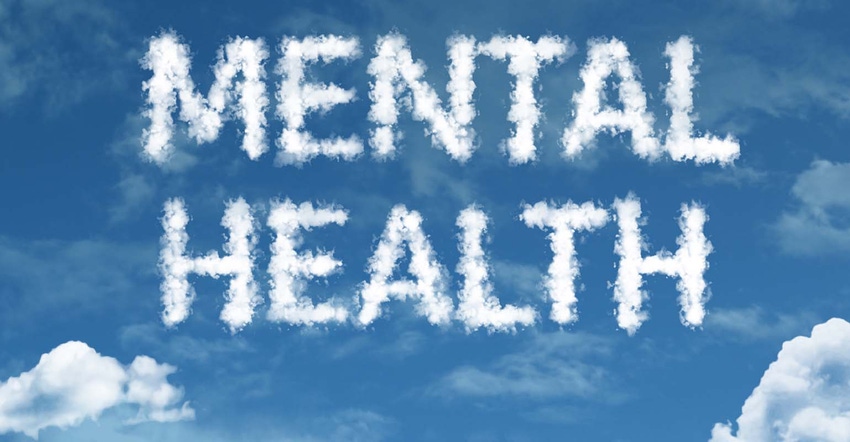
Take a moment and think of what farmers have experienced the past couple years: Trade wars, record flooding, prevent plant, COVID-19, supply chain disruption and low prices.
"Farming is stressful even in the best of times and we haven't had a lot of best of times lately," said Todd Van Hoose, president and CEO, Farm Credit Council, in a conference call announcing the launch of a free farm stress management course.
The online course, which was developed by Michigan State University Extension and University of Illinois Extension, will help farmers, their families and neighbors identify and cope with stress. It provides participants the skills to understand the sources of stress, manage their own stress, learn the warning signs of stress and suicide, identify effective communication strategies, and connect farmers and ranchers with appropriate mental health and other resources.
Total time commitment for the self-paced three-unit course is less than three hours. It can be accessed from the Farm Credit website at www.farmcredit.com and also through the American Farm Bureau Federation website at https://www.fb.org/programs/farm-state-of-mind.
Acknowledging that broadband access can be a barrier to online programming in rural areas, Cheryl L. Eschbach, director of the Health and Nutrition Institute at Michigan State University Extension, said the content is mobile-phone friendly and can be viewed on a smartphone.
Partnership
In 2019, AFBF, National Farmers Union and Farm Credit partnered with Extension in Michigan and Illinois to offer the course and both AFBF and NFU offered train the trainer events at their annual meetings. Now, they are making the training free and available to all because they see stress rising not only among farmers, but also among farm families and farming communities.
Farm Credit has a mission to support rural communities, Van Hoose said, and this program fits well with its mission as rural America has limited mental health resources and it can be challenging for people to get the help they need. There is also a stigma in rural America about people seeking help for mental health, he said. Van Hoose said he hopes the training helps overcome the stigma, provides the skills for people to communicate in ways that reduce stress and helps people get the help they need.
"It's free, private help to help manage mental stress and mental health," he said.
AFPF President Zippy Duvall spoke of coping with his pain after his wife's death last year.
"Being strong doesn't mean going it alone and it doesn't mean being silent," Duvall said. "Quiet is the opposite of strength. Strength is asking for help when you need it. Sometimes just talking about your stress and your pain helps."
Mike Stranz, vice president of advocacy for National Farmers Union, said the past four months have been isolating and the free mental health training online will make a big difference. With the decrease in rural population, there are fewer opportunities for rural people to connect and share.
He said the train the trainer training from the annual meeting is already making a difference, sharing the story of one member from Oklahoma who took a call and directed the farmer to a health center.
Lack of access
In 2017, about 6.8 million people in nonmetropolitan counties experienced a mental health condition and 1.7 million had serious thoughts of suicide. In 2011, the U.S. Department of Health and Human Services reported that 61% of designated Mental Health Professional Shortage Areas were in nonmetropolitan areas. It would take another 4,000 and 6,000 mental health professionals to provide adequate care nationwide.
One in five U.S. adults face mental health issues at any time, said Courtney Cuthbertson, assistant professor and Extension specialist, University of Illinois Extension. That means at any given time, half a million producers may be struggling with mental health issues.
About the Author(s)
You May Also Like




